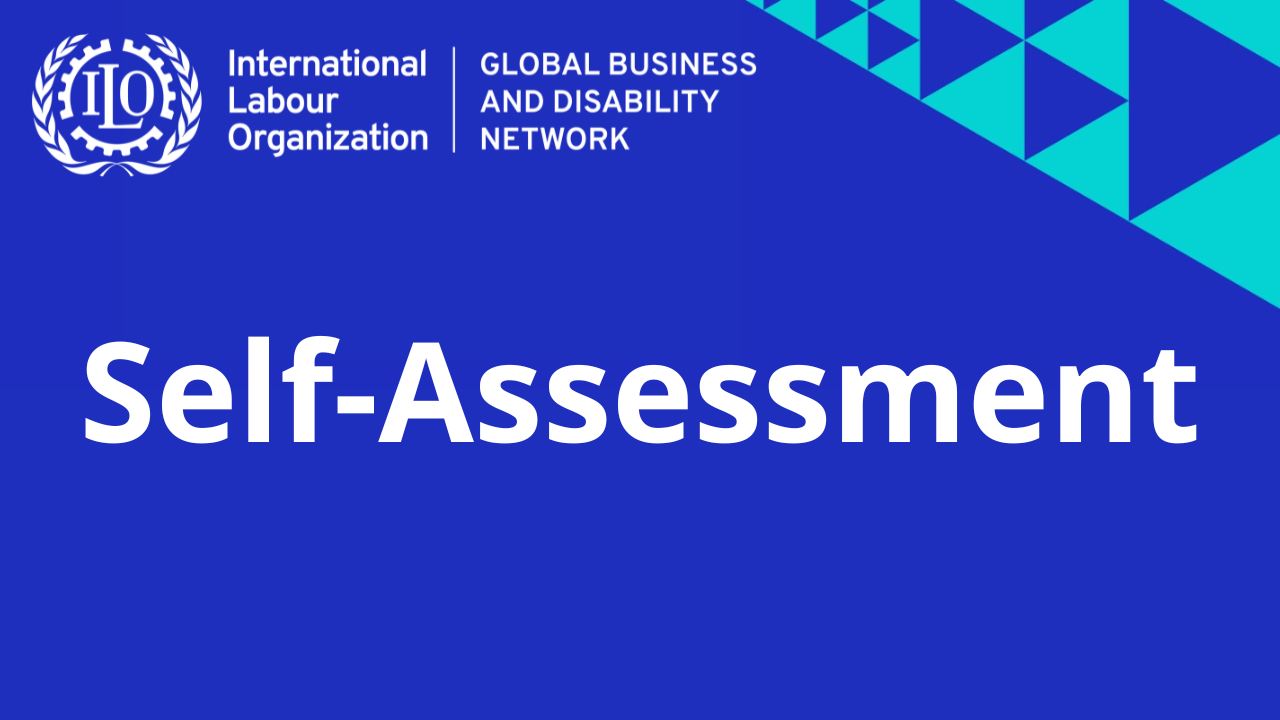ILO GBDN Self-Assessment
Aligned with the Ten Principles of the ILO Global Business and Disability Network (GBDN) Charter, and the universal principles that shape the United Nations Convention on the Rights of Persons with Disabilities, the free-of-charge, multilingual ILO GBDN Self-Assessment enables local businesses, in any country and jurisdiction, to identify disability performance gaps and set priorities for action to address such gaps.
The interactive version of the tool in English is available here.
The tool in Spanish and French language versions is available here.
The tool in German and Arabic language versions is available here.
This free management tool supports ILO GBDN corporate members to realise at national level their commitment to the ILO GBDN Charter. In fact, any multinational enterprise can use the tool to compare its performance on the ground - country by country – to determine what direction, standards and resources their national leadership teams need from their head office if they are to promote disability equality and inclusion consistently worldwide.
This confidential, challenging yet achievable performance benchmark is carefully tailored to meet the needs of those business leaders directly responsible for local operations, and should take approximately two hours to complete. The tool is not intended to measure the performance of a global head office.
The ILO GBDN Self-Assessment enables leaders of a local business to:
- promote equality, access and inclusion for all persons with disabilities as colleagues, potential colleagues, customers and valued stakeholders.
- enable a disability confident and inclusive corporate culture.
- advocate as allies for the systemic reforms which enhance the wider economic and societal inclusion of people with disabilities.
Once the Self-Assessment is completed, users get a report indicating progress and priorities for improvement and will be assigned a performance level of “Foundational”, “Practitioner” or “Leader”. Questions are weighted to reward companies which have mitigated the risk of disability-based discrimination as framed by the universal principles of the United Nations Convention on the Rights of Persons with Disabilities and ILO labour standards, and to incentive actions which “fast track” a disability confident corporate culture.
Users are asked to voluntarily share their confidential results and feedback with the ILO GBDN secretariat, so that this anonymised learning can inform continuous improvement of the tool.
